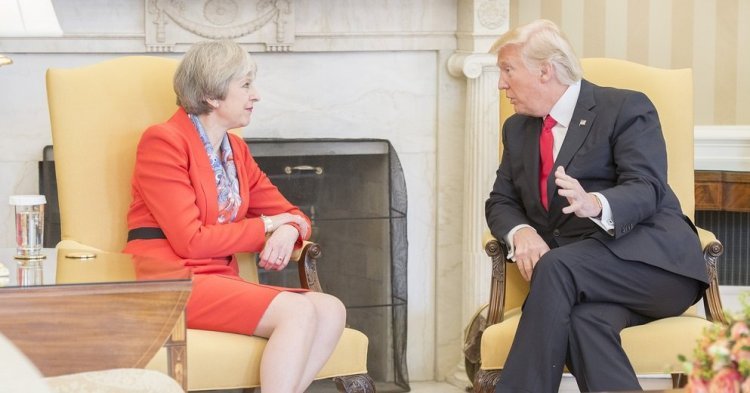A long-awaited speech and a predictable ruling
As predicted a few months ago in this magazine, Brexit will be hard. In her January speech, Prime Minister May has outlined the UK’s priorities with regard to the Brexit negotiations. Britain will seek to control the nature and numbers of immigrants coming from the EU, will no longer be subject to the European Court of Justice’s jurisdiction, and will be free to pursue the goal of a “global Britain” by striking its own trade agreements with the rest of the world. She was, perhaps unexpectedly, clear about what this means for the future of UK-EU relations: Britain will leave not only the EU, but also the single market and the customs union. It will opt-in to several EU-wide policies, notably on security, defence, and the fight against organised crime, in exchange for some contribution to the EU budget. By doing so, May has implicitly agreed to negotiate on the EU’s, not the UK’s, terms. On the other hand, some points were left unclear: the UK will attempt to negotiate sectoral single market access – for the car industry, for instance – but this will be very difficult legally, technically, and politically. In addition, May has forgotten to mention that the UK is leaving Euratom.
The UK Supreme Court has delivered its verdict: the government cannot use the royal prerogative to trigger Article 50 TEU and must therefore obtain consent from the parliament. This verdict is in line with expectations and with the decision of London’s High Court. The House of Commons has backed an art.50 bill on 1 February, but MPs are to amend it – and the Lords have to vote it – before it becomes law. Further assurances from the government will thus be demanded. MPs have also already obtained from the Prime Minister a guarantee it will have the last word on the outcome of the negotiations with the EU. The verdict, however, is not all bad for the government, as the Supreme Court ruled that leaving the EU is a British matter – May will not need agreement from devolved administration. Perhaps this is why she sought to reassure Northern Ireland by pledging there will be “no return to a hard border” in Ireland. Yet, as the Republic of Ireland applies freedom of movement and as the UK wishes not to, one struggles to understand how this is technically feasible.
The Trump-May rapprochement and its consequences
In an attempt to illustrate Britain’s desired global position, May was the first European leader to visit Donald Trump in Washington. Of course, this was also intended to “wave the flag of the Anglosphere”to the public and reaffirm the strength of the UK-US “special relationship”. The visit first appeared to be a success – cameras caught Trump and May holding hands and the former stuck to his declaration that “Brexit will be a success”. Yet, the assurance that the US is “100% behind NATO” tellingly came from May’s, not Trump’s mouth. It appears the British Prime Minister tried to chasten President Trump – perhaps to give the impression of British influence over the US – and failed, as exemplified by Trump’s subsequent (and highly criticised) ban on nationals from seven countries. During a visit in Turkey, Theresa May was asked to clarify Britain’s position regarding the ban, and failed to deliver a satisfying answer. Only after several hours, and a petition demanding the cancellation of Trump’s visit to the UK, did she officially “disagree” with the ban.
She did obtain a significant change of rhetoric from Washington: the UK is no longer at the back of the queue to sign a trade deal with the US – in fact, preliminary talks have begun. But the UK faces a big hurdle: the NHS and agriculture are likely to be part of any deal with the US. After all, Trump has made clear it will be “America first”. May hasn’t ruled out further privatisation of the NHS at the hands of US companies, and combined with Trump’s stance on Obamacare, this should very much worry the British. And of course, no trade deal can be signed while the UK is still a member of the European Union. Further obstacles to a US-UK honeymoon include their differing views on multilateralism, on Russian sanctions, and more fundamentally, on the need for free trade: perhaps a “global Britain” comes too late now that the US is taking a protectionist turn – not to mention inward-looking China and nationalist India.
Cosying up to Trump may also not be the best course of action given his expressed desire to see the break-up of the European Union – despite May affirming repeatedly that a united EU is in everyone’s interest. After all, actions matter more than words, and from a European perspective, Trump is increasingly toxic. This all adds to Britain’s veiled threat to undercut the EU by lowering its corporate tax in the event it gets a “bad deal”. Yet, these threats are a “transparent bluff” – lowering the corporate tax would be deeply unpalatable to her electorate and provoke retaliation from the EU, and in any case, corporate tax in the UK is already lower than the EU average. And even with lower tax still, companies are unlikely to flock to a Britain that is cut off from the world’s largest market and geographically far from any other large market.
What does this all tell us? The UK’s traditional foreign policy – based on thetwo pillars of EU membership and the “special relationship” – is entering a long winter. The first pillar will practically disappear, while the second is as unpredictable as Trump’s next tweet. For the UK’s foreign policy, what is there left?


Follow the comments: |
|
